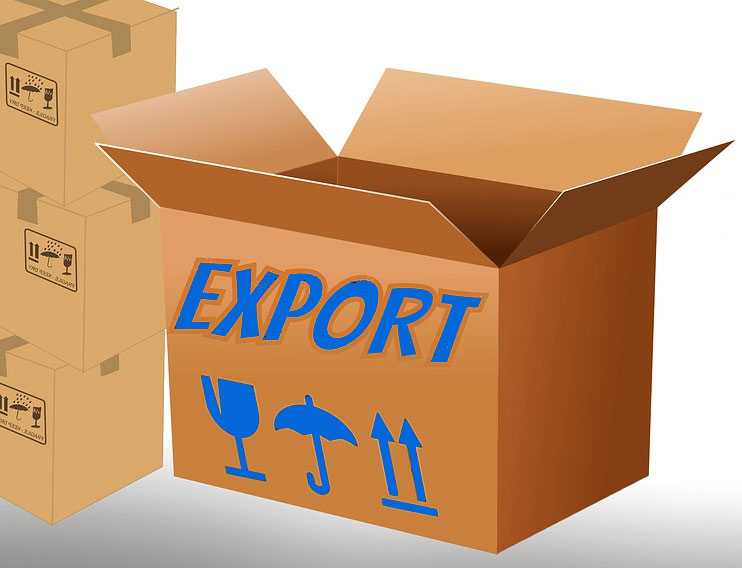
by logisticsplus | Mar 29, 2016 | News
 Exporting can seem like a daunting task to many small- and medium-sized businesses, but it can also be a great way to expand your customer base and grow your sales. Make no mistake, exporting can be a challenge. You have to take the time to select the right product, understand the applicable rules and regulations in both the U.S. and the country to which you are exporting, identify your potential customers, and find out about the different payment and shipping alternatives. Here are some tips for becoming a successful exporter.
Exporting can seem like a daunting task to many small- and medium-sized businesses, but it can also be a great way to expand your customer base and grow your sales. Make no mistake, exporting can be a challenge. You have to take the time to select the right product, understand the applicable rules and regulations in both the U.S. and the country to which you are exporting, identify your potential customers, and find out about the different payment and shipping alternatives. Here are some tips for becoming a successful exporter.
- Identify your potential market. If you’re interested in exporting, you need to identify the right foreign markets for your products. Information is readily available through government agencies and business-related organizations such as foreign trade associations, chambers of commerce, trade commission offices, and development centers (like the SBDC in PA). You can also visit www.export.gov to access a wealth of data that can assist you in identifying overseas markets for U.S. goods. Each foreign market has different trade barriers, import regulations, and technology considerations that may affect your exporting decisions.
- Assess your product potential. A product may be successful in the U.S., but that is no guarantee it will be successful in a foreign market. Preparing a product for export requires not just knowledge of the product, but also an awareness of the many unique characteristics of the market to which you are exporting. Cultural difference and local customs may also require product modifications in areas such as branding, packaging, and labeling. Awareness and sensitivity to these differences are critical to a successful product introduction.
- Know the export controls and licensing requirements. Exporting can expose your business to laws and regulations that you may not be familiar with. Different rules can impact your ability to successfully do business in foreign markets. Violation of these rules can have significant repercussions, including denial of our export privileges and fines.
- Investigate foreign country import controls. Before exporting your product to a foreign market, you need to identify whether the country you’re exporting to has any import controls related to the sale of your product. These can include prohibitions, restrictions, or import licensing requirements. Import documentation requirements and other regulations also vary by country.
- Understand U.S. export laws. As an exporter, you need to determine which federal department or agency has jurisdiction over the item you’re planning to export, and whether or not you will need an export license. The key in determining whether an export license is required for a given product is whether the item has a specific Export Control Classification Number (ECCN).
- Make sense of Incoterms. As an exporter, you need to understand the costs, responsibilities, rights, and obligations that accompany the use of a specific Incoterm. Every quotation or sales order must include a term of sale. If you fail to clearly identify the specific Incoterm to your customer, it can lead to an overestimation or underestimation of the costs associated with the goods you are selling (and ultimately a lost sale).
- Make sure you have the right insurance coverage. You need to understand the amount of insurance on your export transaction and who will be responsible in the event of loss or damage while the goods are in transit. Many freight forwarding companies will provide cargo insurance options to help address these risks.
- Hire a reliable freight forwarder. An international freight forwarder acts as an agent on your behalf and assists in moving your shipment from its U.S. origin to its foreign destination. Capable freight forwarders are familiar with the import rules and regulations of foreign countries, U.S. export regulations, methods of shipping, and required documentation. They can assist you in preparing pricing quotations by providing freight costs, port charges, documentation fees, insurance costs, and handling fees. They can also recommend packaging methods that will best protect your products during transport.
While the above tips are good for every exporter to know, if you work with an experienced and reputable freight forwarder, such as Logistics Plus, you won’t have to deal with too many of the details involved with exporting your goods to a foreign country. We have access to substantial shipping discounts for both international air and international ocean freight services, and our fees are very affordable. We can also provide you with valuable consultation on all aspects of global trade compliance, and we can even help you with financing solutions. Click the button on the left below to request more information, or the button the right to start the export quotation process.


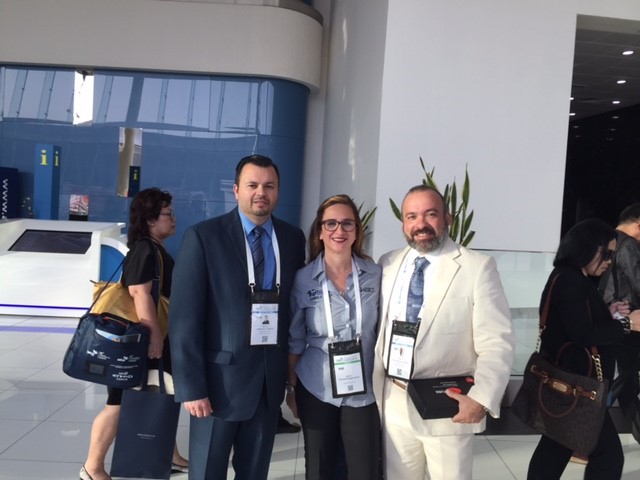
by logisticsplus | Mar 14, 2016 | News
 Representatives from Logistics Plus are joining fellow freight forwarders from around the globe at the industry’s largest and most important business conference of the year — the 2016 WCA Worldwide Conference in Abu Dhabi, UAE. Abu Dhabi is at the heart of the fastest growing logistics region in the world. It is a modern and exciting city and has gained a worldwide reputation as a vibrant and secure destination for both business and tourism.
Representatives from Logistics Plus are joining fellow freight forwarders from around the globe at the industry’s largest and most important business conference of the year — the 2016 WCA Worldwide Conference in Abu Dhabi, UAE. Abu Dhabi is at the heart of the fastest growing logistics region in the world. It is a modern and exciting city and has gained a worldwide reputation as a vibrant and secure destination for both business and tourism.
Representing Logistics Plus at the event are Francisco Tijerina (director/LP Mexico), Jose Francisco Garza (managing director/LP Mexico), and Gabriela Garza (business development/LP Mexico). Francisco, Gabriela, and Jose (shown left-to-right in the photo) have been meeting with delegates from different countries to develop relationships, secure new trade lanes, and provide information on Logistics Plus global solutions.
The WCA event is expected have over 2,500 freight forwarding executives gathered for 3 days of intensive one-on-one business meetings and a wide range of social networking events. Acknowledged globally as the most important conference of its kind, the 8th WCA Worldwide Conference is being held from 12-16 March at the state-of-the-art Abu Dhabi National Exhibitions Company – and combines all four of WCA’s general networks within one major event. The conference is an integral part of the WCA Conference Week and is a must for all members of the WCA.
Click the image below to learn more about Logistics Plus freight forwarding expertise.
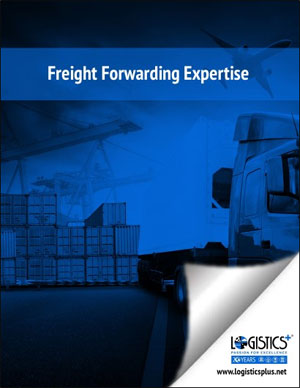
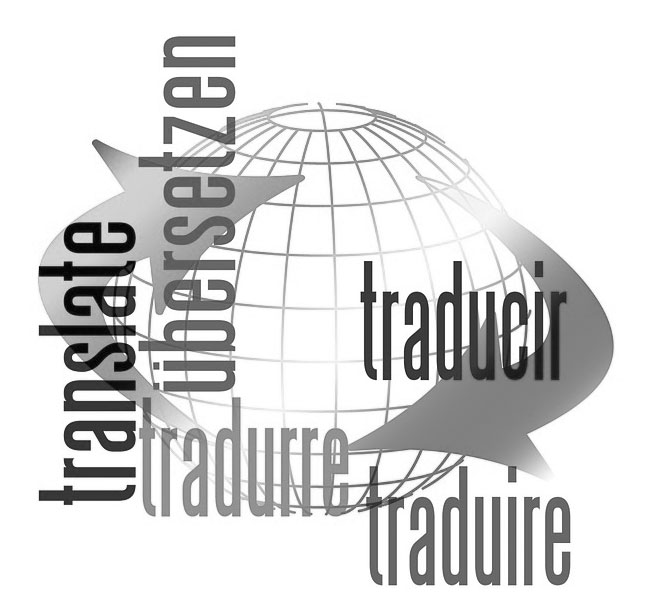
by logisticsplus | Mar 11, 2016 | News
 Nǐ xūyào fānyì yīmén wàiyǔ?
Nǐ xūyào fānyì yīmén wàiyǔ?
Tapā’īṁ vidēśī bhāṣā anuvāda garna āvaśyaka cha?
¿Necesita traducir un idioma extranjero?
Do you need to translate a foreign language?
If you need help with in-person, on the phone, or document translations services, then you need Logistics Plus Linguistic Solutions (LPLS). In addition, LPLS can assist with multi-cultural marketing and advertising—including website, software and multi-media presentations.
LPLS provides the following services:
Interpretation
LPLS provides consecutive or simultaneous services in person or over the phone and can accommodate any event from business meetings and seminars to field operations in remote locations.
Management Training Needs Assessment & Consulting
LPLS specializes in assisting multi-national customers with international teams all over the world. They help you directly address cultural issues and help you develop the competence you need to be more effective when working across cultures.
Document Translation
LPLS offer fast and accurate translation of any and all types of documents (medical records, business proposals, legal correspondence, technical manuals, brochures, immigration or tax records and more). They can scale their services to meet your demands and budget.
Website and Software Localization Multimedia Production
As technology evolves so do LPLS – its staff is technologically savvy and stands ready to assist you in translating your digital needs to match those of any country in which you aim to integrate this technology.
LPLS is comprised of a group of language, logistics, and military veterans who are experienced in the fields of language services and training, recruiting, intelligence, security, logistics, information technology, government relations and military operations. With this extensive background, LPLS is the ideal partner when it comes to translation and interpretation services and gives clients a competitive advantage in conducting business internationally. To learn more, you can download the PDF shown below, or you can visit their website at http://www.lplinguisticsolutions.com/
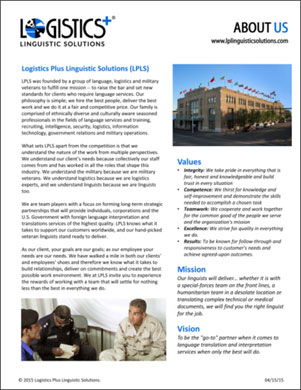

by logisticsplus | Nov 16, 2015 | News
 According to a U.S. Department of Commerce report, over 185,000 U.S. companies imported foreign goods in 2012, an increase of more than 10 percent from 2009. The majority of these businesses were small or medium-sized companies that may, in fact, lack the necessary resources to be a successful importer. If your business imports – or is planning to import – foreign goods, here are ten (10) keys to successfully navigating the complex waters of international trade.
According to a U.S. Department of Commerce report, over 185,000 U.S. companies imported foreign goods in 2012, an increase of more than 10 percent from 2009. The majority of these businesses were small or medium-sized companies that may, in fact, lack the necessary resources to be a successful importer. If your business imports – or is planning to import – foreign goods, here are ten (10) keys to successfully navigating the complex waters of international trade.
- Get a Formal Contract
Before purchasing and importing foreign products, make sure you issue a formal written document that includes all of the significant issues to the buyer and seller, such as product acceptance, warranties and dispute resolution procedures. Otherwise, you will expose your business to significant risks which may be very difficult to control
- Familiarize Yourself with U.S Customs Policies & Procedures
It is essential that you fully understand whether or not importing your product will require a license or permit. Although the U.S Customs and Border Protection (CBP) does not generally require importers to have a license or permit, there are other agencies that may require one; examples include the FDA, USDA and the ATF. Furthermore, there are certain goods that may be subject to specific requirements with regards to their testing, marketing, certification, labeling, packaging and documentation. To get more acquainted with these requirements, you can visit www.cbp.gov (or see key #10 below).
- Make Sure You Understand Incoterms
This may be a no-brainer, but it is always important to understand the deal in which you are getting yourself. Suppliers are obliged to submit a term of sale alongside each quotation submission. It is your responsibility to fully understand the costs, rights and obligations included in these Incoterms. This will also help you estimate your costs more accurately (if you’re confused about Incoterms, see key #10 below).
- Classify Your Products Properly
The harmonized tariff schedule classification (HTS) of a product is what determines the rate of duty applied to it. Therefore, it is very important that you assign the correct classification to your products. This will not only reduce your duties, but will also ensure you don’t face additional obstacles when your goods enter the United States. To learn more about this process, talk to someone familiar with HTS classifications (or see key #10 below).
- Consider Preferential Duty Programs
There are many preferential duty programs out there that can help you avoid certain duties and reduce your transaction costs. The Generalized System of Preferences, in addition to free trade agreements that the U.S. has in force with 20 countries, can give you a competitive advantage in the global market place (or see key #10 below).
- Research Import Quota Requirements
These refer to quotas that limit the amount of imported commodities into the United States within a specified amount of time. Some quotas allow goods to continue entering the United States after the limit has been reached but at a higher rate of duty, these are called tariff rate quotas (If you’re not sure if your product has an import quota, then see key #10 below).
- Find a Reliable and Legitimate Foreign Seller
Before making any final transactions, you need to ensure that the seller which you are dealing with is reliable. This is when you should conduct extensive research in terms of their reputation, financial status, and overall history. Doing business with unfamiliar suppliers can be risky, so you have to always be prepared.
- Pick the Right Insurance Coverage
There are many things that could happen to your goods on their way to their final destination – from severe weather conditions to rough handling by carriers, you can never be over-prepared. It is, therefore, very crucial that you accurately determine the type, amount, and extent of insurance coverage that you may need. You should also know who will be responsible for insuring your goods when they are not in your possession. Always make sure you have proof of insurance from your sellers, and never only take their word for it.
- Keep Records of Everything
U.S. CBP laws require importers to keep records of all documents relating to imports for a period of five years. These records may be inspected at any time in order to check your compliance status to all U.S. CBP laws (if you’re not sure what documents to keep, see key #10 below).
- Hire an Experienced Customs Broker!
If you’re new to importing – or even if you’re not – you may want to consider hiring a freight forwarder that is also a professional customs broker, like Logistics Plus (LP), to help you with all of your importing procedures. The LP Customs Broker Solutions team can help simplify the process, and ensure you abide by all rules and regulations, thus minimizing any potential future problems. If you have any questions specific to import customs rules or duties, feel free to contact Gretchen Blough, our Customs Brokerage Manager, at gretchen.blough@logisticsplus.com.
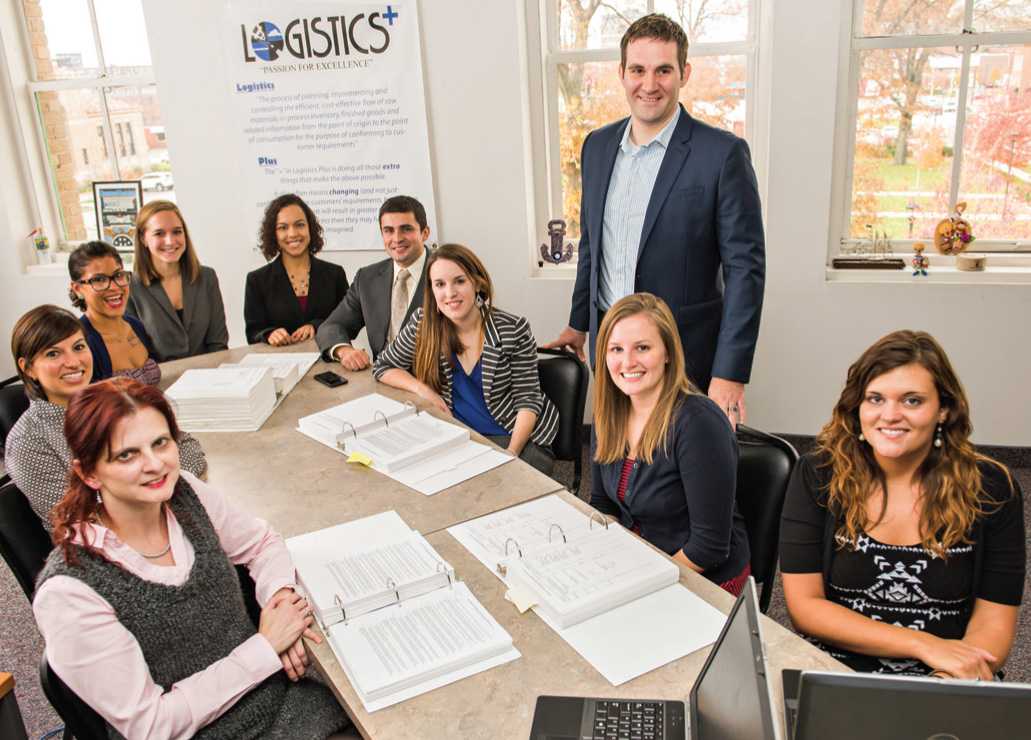
If you’re ready to import a shipment or need help with an international air or international ocean freight quote, please send an email to imports@logisticsplus.com (or click the button below).

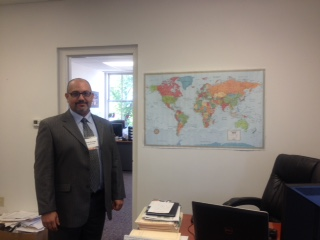
by logisticsplus | Nov 4, 2015 | News
 One of the primary promises we make to our customers is to deliver their products to the right place, on time and intact. This has enabled Logistics Plus to earn a reputation for great service while growing on a global scale. After establishing offices in the United States, Europe, Asia and Africa, Logistics Plus has added another important region to its global network: the Middle East.
One of the primary promises we make to our customers is to deliver their products to the right place, on time and intact. This has enabled Logistics Plus to earn a reputation for great service while growing on a global scale. After establishing offices in the United States, Europe, Asia and Africa, Logistics Plus has added another important region to its global network: the Middle East.
In 2013, when Imad Murtada first joined Logistics Plus as a business development manager, it only had one logistics agent in the region. It wasn’t long, however, until Imad, who brought with him many years of logistics experience in the region, utilized his connections and expertise to connect the Middle East to the world through Logistics Plus. Today, Logistics Plus operates out of eight offices located in Bahrain, Egypt, Saudi Arabia, Libya and the United Arab Emirates.
“We went from nothing to generating over $1.5 million in revenue from our business in Bahrain and Egypt alone,” says Imad. “This is only the beginning. Some of the largest companies in the region do business with us now. Wescosa and Cristal in Saudi Arabia, and Food National and Transilwrap in Egypt, are just a few examples.”
Operating in the Middle East is not easy: the logistics industry there is competitive and requires extra-ordinary customer service skills. Not to mention the constant demand for high quality services and low rates. “You have to reply to customer e-mails within no more than fifteen minutes,” Imad explains “If you don’t, some other company will take your customer.”
Each country in the Middle East also has its own set of rules, which is why it is very essential that logistics employees are aware of these rules and abide by them. To address cultural differences, Logistics Plus hires professionals that are familiar with these cultures and can speak the local languages fluently.
The number one key to succeeding in the region, according to Imad, is to build solid customer relationships with customers. “Customers in the Middle East value the relationship you have with them,” he says. “If they like you, they will be loyal customers.”
When asked about the political situation, Imad says that although the situation in the Middle East is volatile in some areas, that has not affected existing business. That’s because most shipments are made through either ocean or air freight, and “blacklisted” areas do not even have to be involved in the process. Despite the volatile political situation in some of the regions, business is still flourishing in other parts of the Middle East. In fact, according to the Brookings Institution, this year the city of Dubai was ranked the fifth highest performing metropolitan economy in the world. Last month, Logistics Plus opened its first office there.
Imad is very optimistic about the future of Logistics Plus in the Middle East, and he sees the potential for even more expansion in the region. “We are still relatively new in the area,” Imad says. “We are still building our brand and reputation, and we are doing a great job. As a result, more and more businesses are calling us for logistics solutions in the region.”
For more information about different logistics services in the Middle East, please contact:
Imad Murtada (Business Development Specialist): imad.murtada@logisticsplus.com

 Exporting can seem like a daunting task to many small- and medium-sized businesses, but it can also be a great way to expand your customer base and grow your sales. Make no mistake, exporting can be a challenge. You have to take the time to select the right product, understand the applicable rules and regulations in both the U.S. and the country to which you are exporting, identify your potential customers, and find out about the different payment and shipping alternatives. Here are some tips for becoming a successful exporter.
Exporting can seem like a daunting task to many small- and medium-sized businesses, but it can also be a great way to expand your customer base and grow your sales. Make no mistake, exporting can be a challenge. You have to take the time to select the right product, understand the applicable rules and regulations in both the U.S. and the country to which you are exporting, identify your potential customers, and find out about the different payment and shipping alternatives. Here are some tips for becoming a successful exporter.








